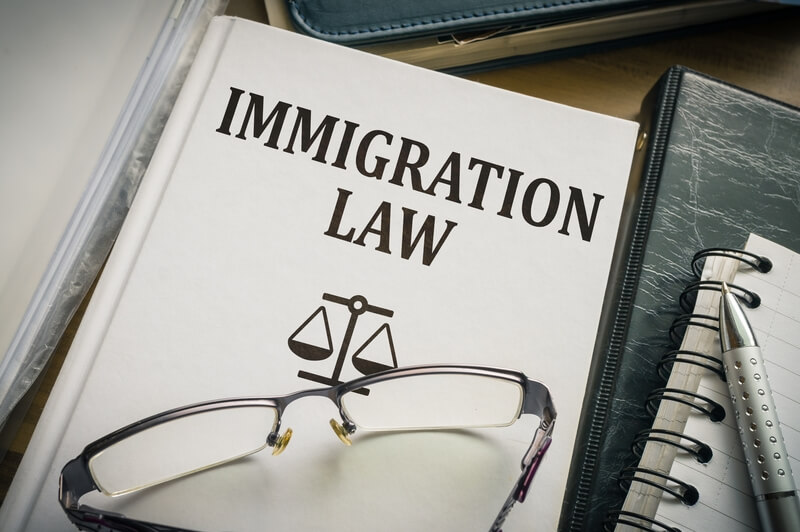Landmark immigration cases have a monumental impact on immigration policy. They play a pivotal role in shaping new laws and significantly impact society. Accordingly, analyzing them can give valuable insights that affect your life.
Key Cases in Immigration Law
We aim to provide a comprehensive understanding of these key immigration cases. Furthermore, this exploration will underscore the importance of staying informed. By examining these cases we hope to be able to bust open myths about immigration laws and pathways. Explore the current state of the delicate balance they have created in the U.S. with us today.
Plyler v. Doe
Plyler v. Doe addressed the issue of denying public education to undocumented immigrant children. It is the first of our key cases in immigration law.
The case originated in Texas in the late 1970s. The state passed a law prohibiting educating children who were not “legally admitted” into the United States. As a result, many undocumented kids lacked essential educational opportunities.
The central legal issue in Plyler v. Doe revolved around the constitutional rights of undocumented children. Specifically, the U.S. legal system had to answer whether the state’s denial of public education violated the Fourteenth Amendment.
In a landmark decision, the Supreme Court ruled in favor of the plaintiffs. It asserted that denying education to undocumented immigrant children was unconstitutional and violated their rights. Therefore, they recognized that education is a fundamental right and crucial for personal development. As a result, Plyler v. Doe set a significant precedent. It has since played a substantial role in shaping the rights and protections of undocumented children.
United States v. Wong Kim Ark
This landmark case tackled the question of birthright citizenship in the context of Chinese immigrants. At the time, the Chinese Exclusion Act of 1882 barred Chinese laborers from becoming naturalized citizens. As a result, Wong Kim Ark, a U.S.-born child of Chinese immigrant parents, got caught in this legal battle. He returned from a trip only to receive a denial for re-entry on the belief that he was not a citizen.
The legal issue revolved around the Fourteenth Amendment’s Citizenship Clause. It states that anyone born in the U.S. is a citizen of the country and the state where they entered the world. The case explored whether a particular phrase actually excluded children born in the U.S. to non-citizen parents.
The Supreme Court ruled in Wong Kim Ark’s favor. It asserted that birthright citizenship applied to anyone born on U.S. soil, regardless of their parent’s immigration status.
INS v. Chadha
INS v. Chadha addressed the constitutionality of legislative vetoes and their impact on immigration. The case centered around a provision in the Immigration and Nationality Act (INA). This law allowed Congress to overturn decisions made by the executive branch concerning the status of immigrants. The case’s origin stemmed from the deportation of Jagdish Rai Chadha. He was a non-citizen who lived in the U.S. on a student visa. The House of Representatives overturned a decision by INS that granted Chadha relief from deportation.
The core legal issue was whether the legislative veto provision violated the separation of powers. The case addressed Congress’s authority to overrule executive powers in immigration matters. The legislative veto allowed Congress to nullify specific decisions without the President’s approval. This power raised concerns about a potential imbalance.
Ultimately, the Supreme Court declared the legislative veto provision unconstitutional. They ruled that such legislative vetoes did violate the principles of the separation of powers. The decision in favor of Chadha asserted that Congress could not unilaterally overturn executive decisions. The effect was a significant shift in the dynamics of immigration policymaking.
Arizona v. United States
Arizona v. United States dealt with Arizona’s controversial law, Senate Bill 1070. Enacted in 2010, SB 1070 aimed to enhance state-level immigration enforcement. This is a key case in immigration law because it allowed law enforcement to question the status of individuals they stopped or arrested. The law also imposed penalties on individuals who failed to carry immigration documents. SB 1070’s passage sparked intense debate and led to legal challenges.
The central question revolved around whether federal law preempted provisions of SB 1070. After all, federal law supersedes state legislation. The federal government argued that SB 1070 interfered with its ability to enforce uniform immigration policies. Furthermore, critics contended that the law could erode trust, making it hard to address public safety concerns.
The Supreme Court struck down several provisions of SB 1070. They held that certain aspects of the law overreached to the federal government’s exclusive authority over immigration. However, the Court upheld the provision that allowed state law enforcement to inquire about a person’s immigration status.
Consult a Local Immigration Expert
These judicial decisions and key cases in immigration law cases have shaped U.S. immigration policy, created some common yet hard to decipher immigration terms and protected immigrant rights. Moreover, they are pivotal in balancing security and human rights and may impact your legal concerns.
Reflecting on these cases makes it evident that staying informed is vital. In fact, legal expertise often becomes necessary if you or someone you know has immigration-related challenges. They will assess your circumstances and provide a zealous defense of your rights.
Ask us for a referral to a local immigration attorney today. You can complete a brief form or call our representatives 24/7 at (866) 345-6784.

